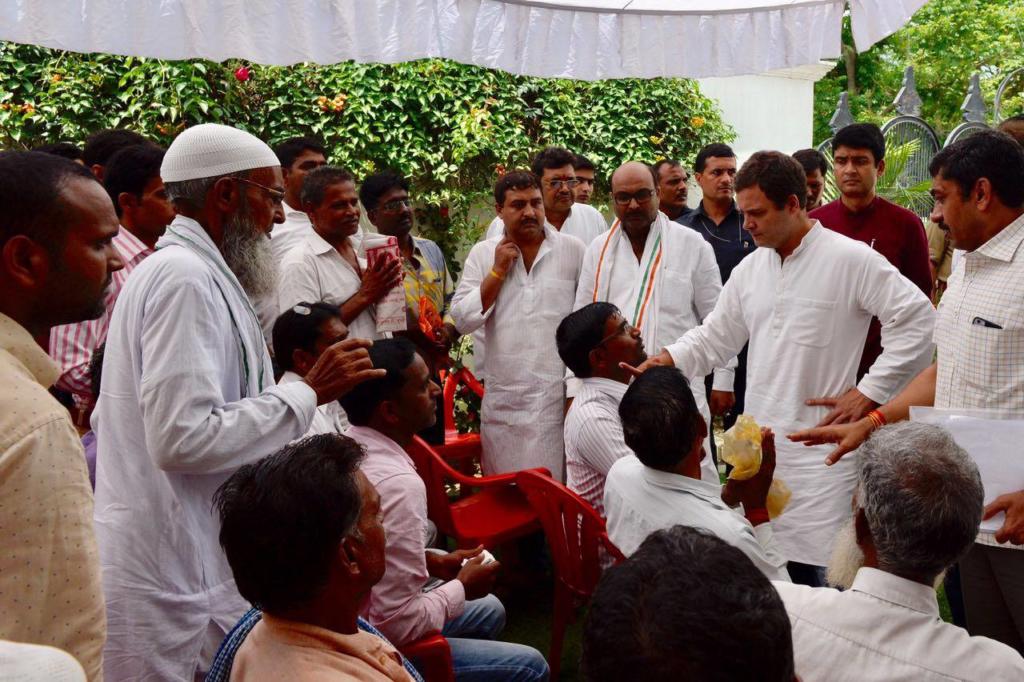India experimented with planned development for more than five decades but it failed to uplift the people of the country out of poverty. The defamatory slang ‘Hindu rate of growth’ was used to describe economic growth of the country. However, once the economy was liberalized it became clear that the problem was not with the culture but policies. The worst thing about planned development is that it works on ‘push’ factor rather ‘pull’ factor. So, the Public Sector Companies (PSUs) are forced to set up factories in different regions depending on political necessities rather than on feasibility. So, a public sector company would be asked by political leader to set up factory in the constituency of a region which has neither natural resources nor the human resources to make the factory profitable. The PSU will make losses and poor taxpayers will have to bear the loss and the country will grow with ‘Hindu rate of growth’.
Jagdishpur, an industrial town in Amethi district, a brainchild of dictatorial son of Indira Gandhi, Sanjay Gandhi who won the election from Amethi constituency in 1980 general election, is the best example of everything that is wrong with planned and socialist economic model. Sanjay Gandhi died in the same year he won the election and the constituency was later represented by his elder brother, Rajiv Gandhi who became the PM of the country in 1984. The region was planned to become an industrial hub and public sector companies were forced to setup factories in the region irrespective of feasibility and concerns of profitability. Many big PSUs like SAIL, HAL, BHEL and thousands of small companies set up units in the area out of political compulsions. The region flourished as the PSUs pumped money to setup factories but in less than a decade, decline began. The reason behind the decline was that almost all the units turned out to be unprofitable because the region is naturally not feasible for industrial development. According to UP Congress spokesman Akhilesh Pratap Singh, nearly 135 small and big industrial units in Amethi closed down after Mr. Rajiv Gandhi ceased to be the Prime Minister.
Malvika Steel, a 1500 crore rupees mega plant conceptualized when Rajiv Gandhi was the prime minister is the best example of how industrial units set out of political compulsion don’t work. 724 acres of land was acquired in Jagdishpur industrial town in 1989 and the plant began production in 1996 with more than 3,000 employees. Within two years, the plant became a sick unit (losses exceeding its entire net worth) and was referred to the Board of Financial and Industrial Reconstruction. The board approved a revival package and the public sector unit was awarded to Jay Prakash Associates, a private player in 2007. However, the deal with JP group could not succeed because employees opposed private sector takeover of the PSU for personal benefits. In 2009, Steel Authority of India Limited (SAIL), a PSU took over the sick unit for 209 crore rupees to revive it. SAIL was obviously forced to take over the plant because Rahul Gandhi represented the constituency at the time and he wanted to bring back the industrial area to life. The unit was renamed as Jagdishpur SAIL unit in 2010 and Rourkela Steel Plant was handed over the revival work. However, the unit could not be revived because the conditions are not suitable for it. Finally, there is a plan for sell-off, “It is difficult to revive the Jagdishpur unit without the availability of domestic gas. SAIL has been asked to look at both aspects — revival as well as a sell-off,” said a Steel ministry official. But as per industry analyst, the unit will not be able to find a buyer because in more than two decades of operation, the unit did not produce a single penny in profit. The political compulsion was so hard that for the financial years 2012 to 2014, the central budget allocated money for steel unit’s revival.
The story of Malvika Steel plant could be taken as an example of how industrial development forced out of political compulsion could go wrong. It could also be used as sample case of how other 135 units were finally shut down before making repeated losses. Today Jagdishpur industrial town is an example of everything that is wrong with planned and socialist development. The political heavyweights force the PSUs to set up factories in their constituency whether it is feasible or not. The dynasties like Nehru-Gandhi play the role of patron to people of their constituencies in socialist economies. The industrialists and business leaders had to be sycophants of these dynasties in socialist economies and in the patron-client relationship, industrialist as well as PSU chief had to be subservient to political regime. They had to take decisions based on political necessities rather than on cost-benefit analysis. Ultimately this system produces what some stupid economist called ‘Hindu rate of growth’ and thousands of people had to live and die in poverty for benefit of dynasties like that of Nehru-Gandhi.
The industrial town declined as the country moved on the path of economic liberalization because private investors are not interested in setting up units or making investment in an area which does not meet their requirements. The private business runs on the basis of profit and therefore cost-benefit analysis is the primary concern for them. On the other hand, in socialist economies political masters force the PSUs to set up units on their constituencies to reap political benefits out of it. Profit for the company and feasibility does not matter for them and therefore economic growth in the last thing in socialist economies.
The present Congress party leadership must learn a lesson from the failure of Jagdishpur and stop socialist rhetoric’s in their manifestos. In fact, the scion of Nehru-Gandhi family must apologize to people of the country because economic policies of his ancestors kept the country poor for decades and millions died in poverty due to these policies.
